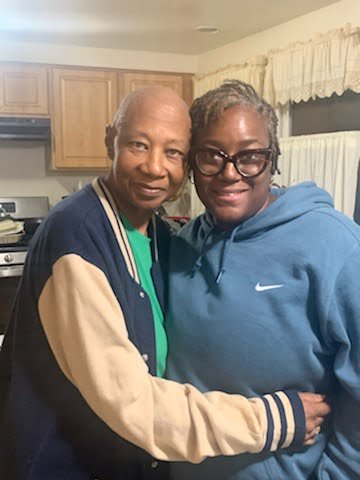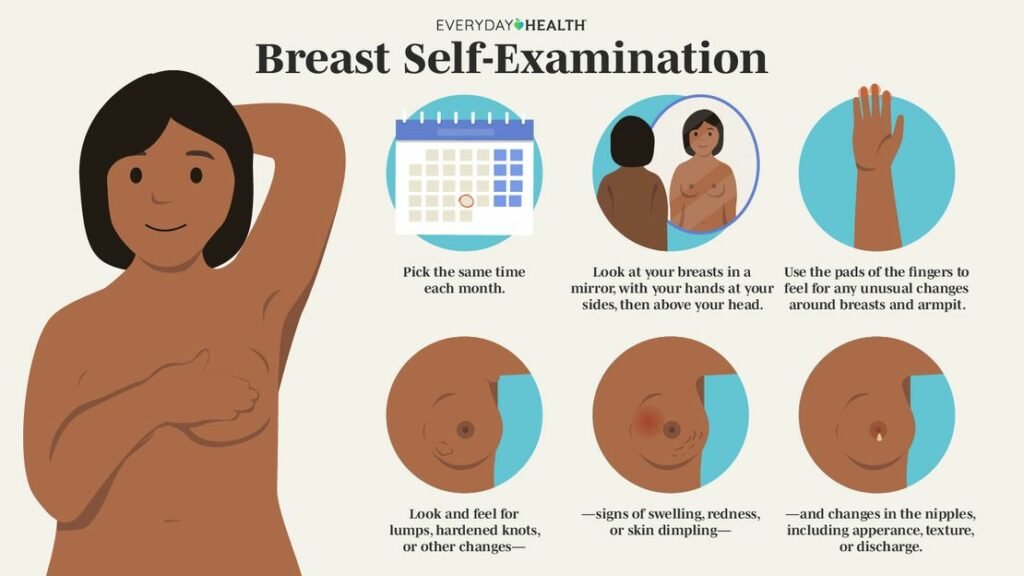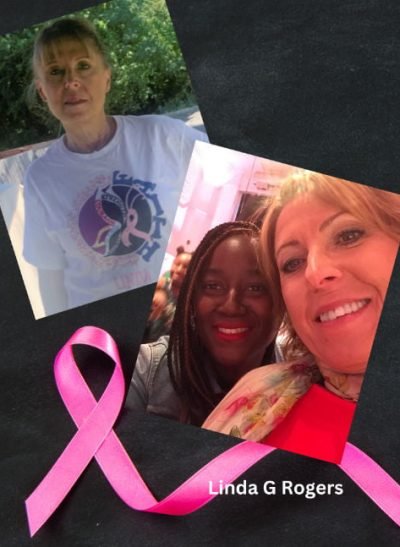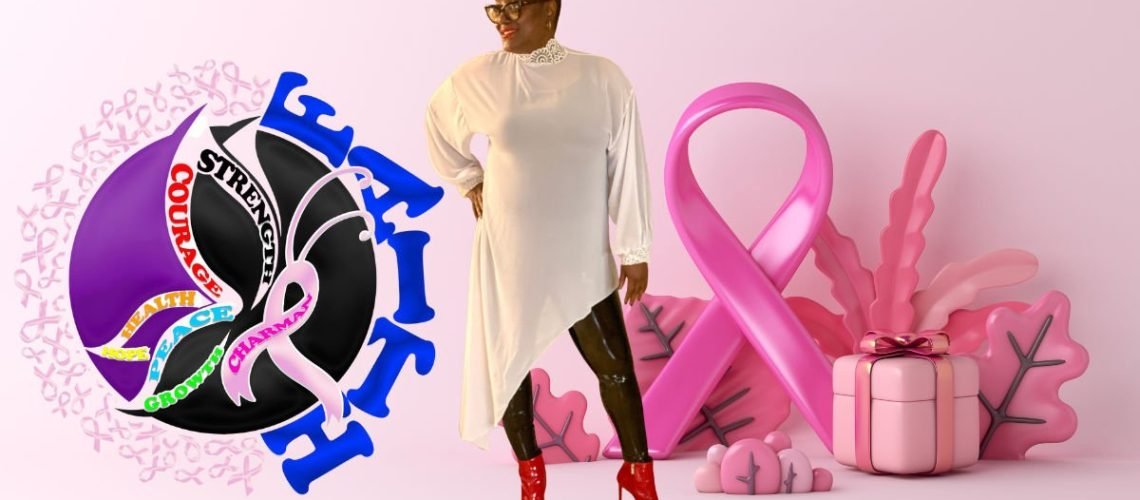I know, I’m a little late for Breast Cancer Awareness Month. But, It’s never too late to raise awareness.
I HAVE TO CATCH YOU UP
The first look into the mirror after having a right-sided mastectomy was overwhelming. A part of me was missing. It made me feel like I’d lost some femininity. I was disfigured. I panicked and got emotional. But a familiar voice repeatedly said to me until I calmed down, “It’s cosmetic.” As time progressed, I accepted the fact that my breast was gone, however, I felt self-conscious about my appearance. There was this empty space occupied with a scar where my breast once was. I was constantly looking down and readjusting myself. This feeling faded after I received my prosthesis.
So much has happened since the last blog post that I have to catch you up. On July 19th, I received my last intravenous chemotherapy treatment. I was anxious, yet relieved. I was anxious because, after each treatment, my body weakened, and I wondered what other toll this was going to take. I had gotten hypothyroidism and elevated blood pressure, and after the previous treatment, I had gotten an encumbering chest pain that frightened me. It didn’t happen again, so I didn’t seek medical attention as I had planned to do had it occurred again. I did, however, tell my oncologist of the event and I was to let him know if it happened again.
On August 4th, I had an ultrasound to view the new area of concern in my breast. It turned out to be what the doctor called “fat necrosis”. Nonetheless, the original tumor continued to grow; or so I thought.
I met with the surgeon on August 12. I had already made up my mind to just have a mastectomy versus a lumpectomy. I was having too many issues and to prevent cancer from returning to that breast, my thoughts were to just take it. The surgeon agreed saying that that was his first thought, but after his assessment, he said that my breast was large enough for him to perform a lumpectomy.
“Hmmm… No, just take it.”
I wasn’t expecting to have the surgery so soon after meeting with the surgeon. But on Tuesday, August 16th, I was at the hospital at 5:30 A.M. to prep for the procedure. I was surrounded by family and friends that I love dearly. I stayed overnight and went home with 2 Jackson Pratt drains.
On September 7th, the drains were finally removed.
Kudos to my treatment team. They were patient and answered all my questions so that I could get an understanding of what was going on. They answered all my “hows” and “whys” for which I had plenty.
MY SURGEON
My surgeon was great. I appreciate him coming in and talking to my family before I went into surgery. I appreciate him for the note he left for them once the surgery was complete. My daughter kept it and gave it to me once everything was over. It meant a lot to her as well. It was very reassuring.
Prior to surgery, I asked him if he could take a picture so that I could see what was giving me so much grief. He came through, showing me a picture of the tumor as he made his rounds after surgery. He said that he thought that having the mastectomy was the better choice. Although the mass that I was feeling in my breast was enlarging, the growth was the breakdown of fat surrounding the tumor. The tumor shrank to about half of its original size.
But now, THE TUMOR IS GONE!

DEDICATED TO MY AUNT WINDY
This blog is dedicated to my Aunt Windy. When I was diagnosed with breast cancer, no one on either side of my family had ever been diagnosed. A couple of weeks after receiving my diagnosis, my aunt was diagnosed with 2 types of breast cancer in one breast. She started chemotherapy a week after I did. Her treatments were every Monday and mine were every Tuesday. So, every Tuesday when I’d go to treatment, I’d call her to see how her treatment went and we’d talk for a little bit until she couldn’t tolerate the treatments any longer. She had to stop due to some health concerns that had arisen. I didn’t stop calling, though. Sadly, my aunt, Windy passed away peacefully on July 3rd.
One of the things she’d ask me each time we’d talk after she lost her hair was, “Baby Pie, you haven’t lost your hair, yet?” I’d laugh and say, “No, not yet.” Well, Auntie, I finally lost my hair right before my last treatment.
BREAST SELF-EXAMINATION

As mentioned in my last blog, I wanted to provide education on how to properly do a breast self-examination. It is important to be aware of your body. Get into the habit of examining your breast so that if anything out of the norm occurs, you’ll be able to tell if something has changed. Doing a breast self-exam is how I was able to get treatment early.
If you still have menses, examine your breast 7-10 days after your cycle starts. Meaning, you should examine your breast, monthly. If you no longer have regular menses, examine your breast on the same day of each month choosing a day you would remember. For example, choosing your favorite number or the day your birthday falls on.
Start by looking at yourself in the mirror with your arms down at your side. Do you notice any changes in the size or shape of your breast? Skin changes?
Then raise both arms. Do you notice any swelling or dimpling of your breast tissue?
Do you have any discharge from your nipples?
With one arm raised over your head, lying down or standing, use the pads of the fingers (the three middle fingers) to go in a circular motion around your breast ensuring you get under your arm. You are feeling for lumps, hardened knots, or anything out of the norm.
Although breast self-exams are important, another important piece to early detection is getting your annual mammogram. Not all breast cancers are found by doing a self-exam. I felt a lump. For others, like my stepmother, going in for your annual mammogram could save your life.
LINDA’S STORY
Invasive lobular carcinoma (ILC) is a type of breast cancer that begins in the milk-producing glands of the breast and has the potential to spread. ILC, in its earliest stages, may have no signs or symptoms. However, as the tumor grows, one may feel an area of thickening, dimpling, or thickening of the skin, or may have a newly inverted nipple. One thing I thought interesting about ILC was that this form of cancer is less likely than other forms of breast cancer to cause a breast lump.
Invasive lobular carcinoma affected someone near and dear to me. My stepmom, Linda Rogers, shares her story.

Q&A With Linda
How old were you when you were diagnosed? I was 59 years old when I was diagnosed with Invasive Lobular Carcinoma.
Did you get annual breast exams? Yes
Did you do self-breast exams? Yes, I performed self-breast exams, regularly.
Was this a routine exam or did you find a lump? This was a routine exam. I did not find a lump during my regular self-exams.
What type of cancer were you diagnosed with? Invasive Lobular Carcinoma
What treatment plan did you decide on? Single Mastectomy
What other options did you have? My other option was to have a lumpectomy. Had I chosen this option, there would have been a chance they’d have to go back in if they didn’t get clear margins.
Why did you choose the treatment plan you went through or are currently going through? The doctor stated I would be cured if the whole breast was removed.
Did you get a second opinion? No
How did you feel about your diagnosis? I felt scared. I was in shock. I was in denial.
Did you do genetic testing? What were the results? Yes. The tests revealed this was not genetic and my daughters would need not be concerned, immediately.
How did the doctor/s respond? They were supportive of my choice to remove the whole breast.
How do you feel about your treatment team? They were amazing! I credit them for keeping me calm. Their knowledge about breast cancer, the data that supports outcomes, best practices, etc., made it easier for me to trust they had my best interest in mind.
Did you make any dietary changes? No
How did your family respond? My family was concerned of course. They did what they could to be supportive.
How did your friends respond? My friends were concerned, as well. They did what they could to be supportive.
How would you help someone else through? I’d be with them when I could. They’d have questions, so I’d answer any questions that I could. I’d also pray for and with them.
What is one takeaway from this? Get your annual Exams!! I didn’t find my cancer by feeling a lump. I had no symptoms at the time. It could not be detected with a self-exam.
RIGHT NOW
Right now, I’m on oral chemotherapy treatment to minimize the risks of a return. The oncologist said that since there was still a tumor present after the initial chemotherapy, my chances of the tumor returning would be great.
At this point, I’m unsure that I’ll be receiving radiation, however, I do have a consultation. Therefore, we’ll see.
Currently, I’m back at work and my oncologist said that once I had surgery, I was considered CANCER FREE!
So, until next time…
Reference: Breast Self-Exam: How to Do One and What to Look For

